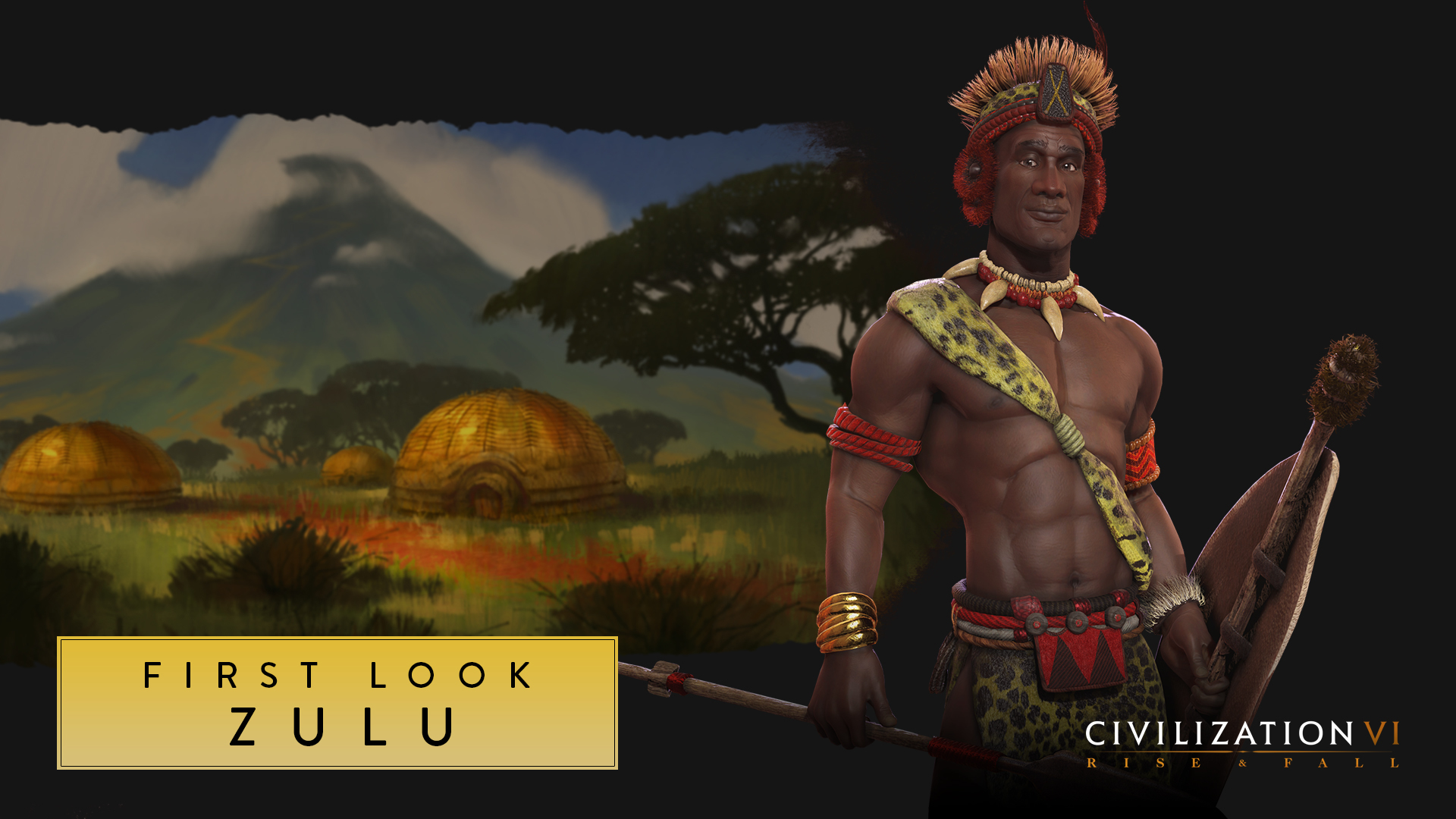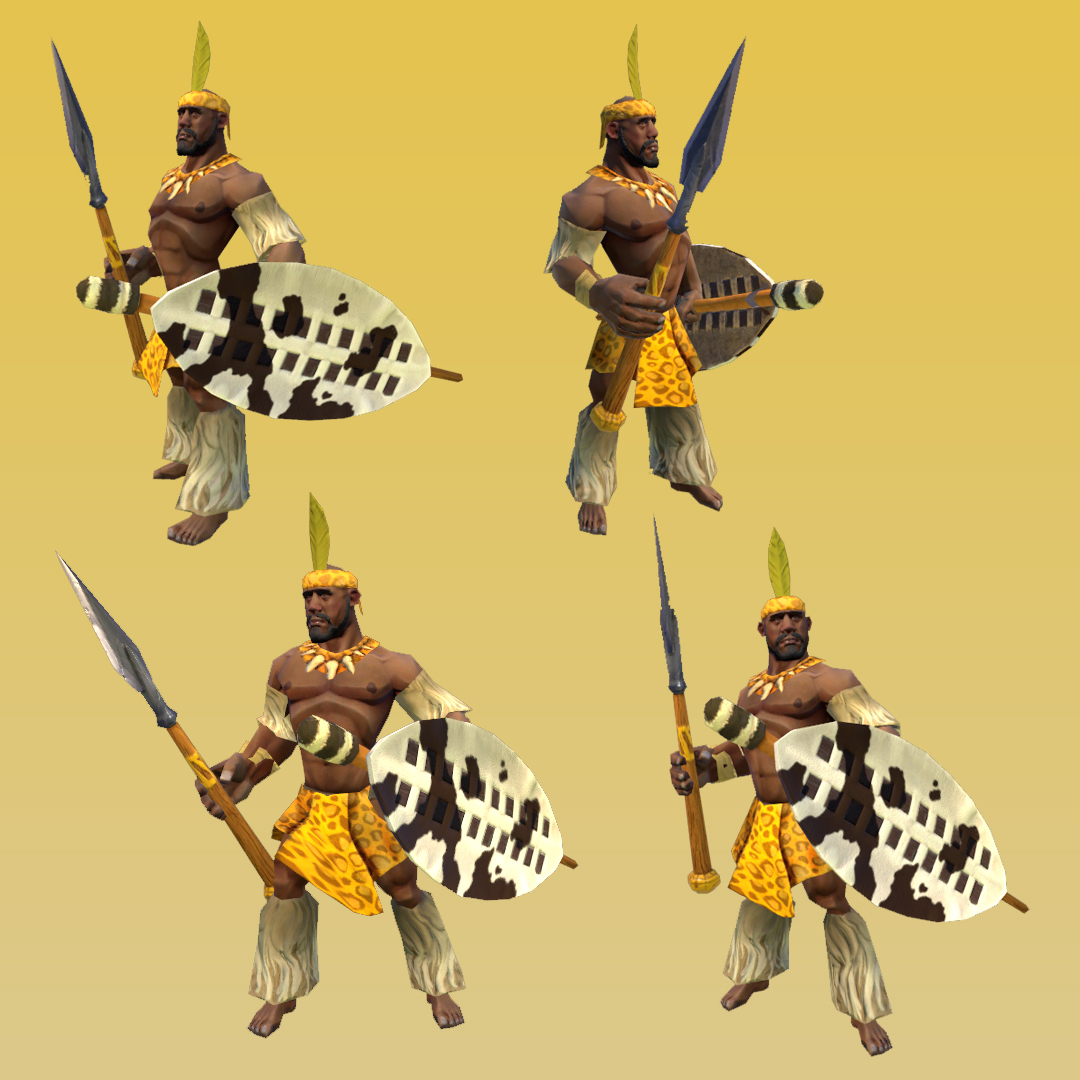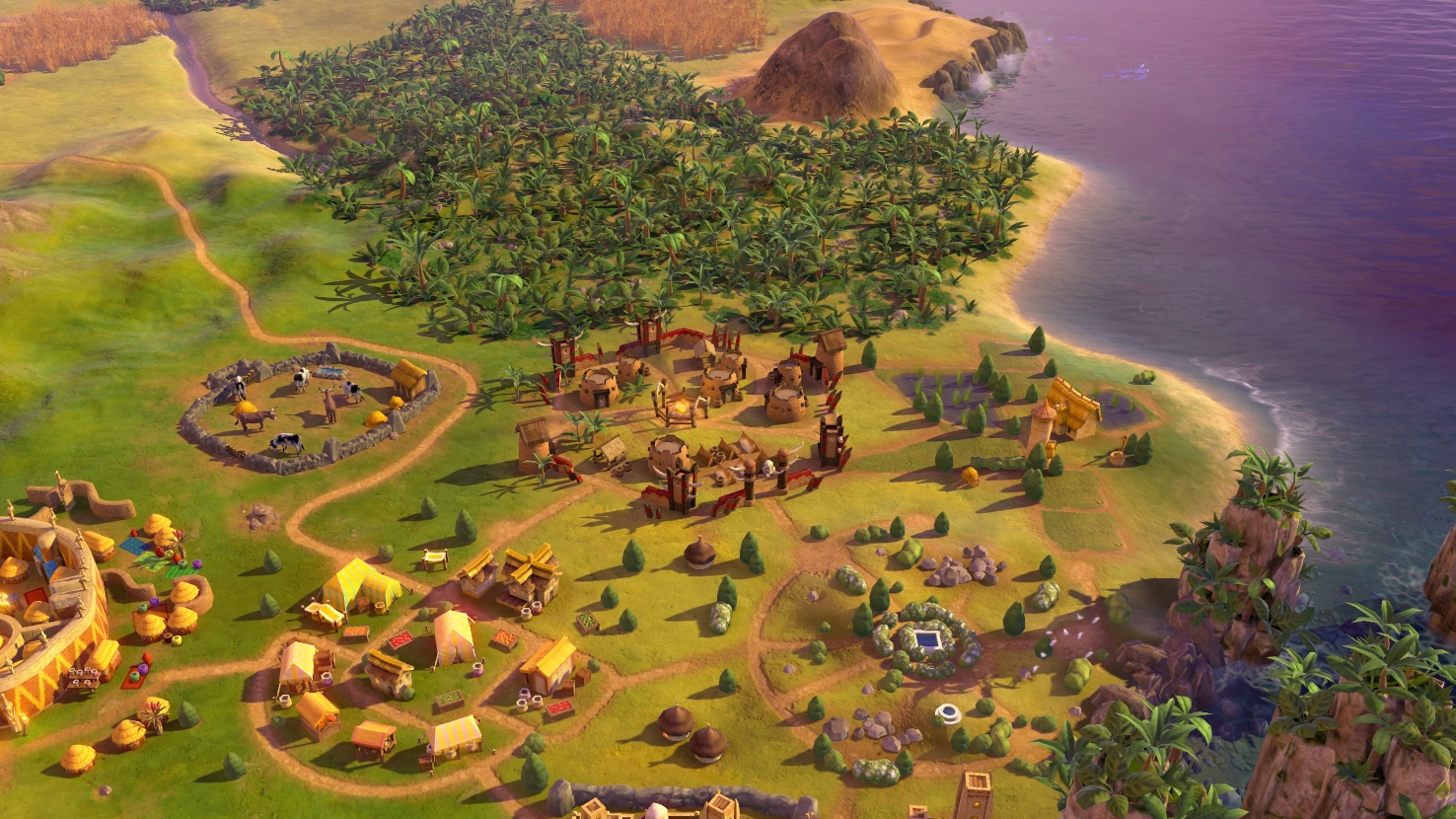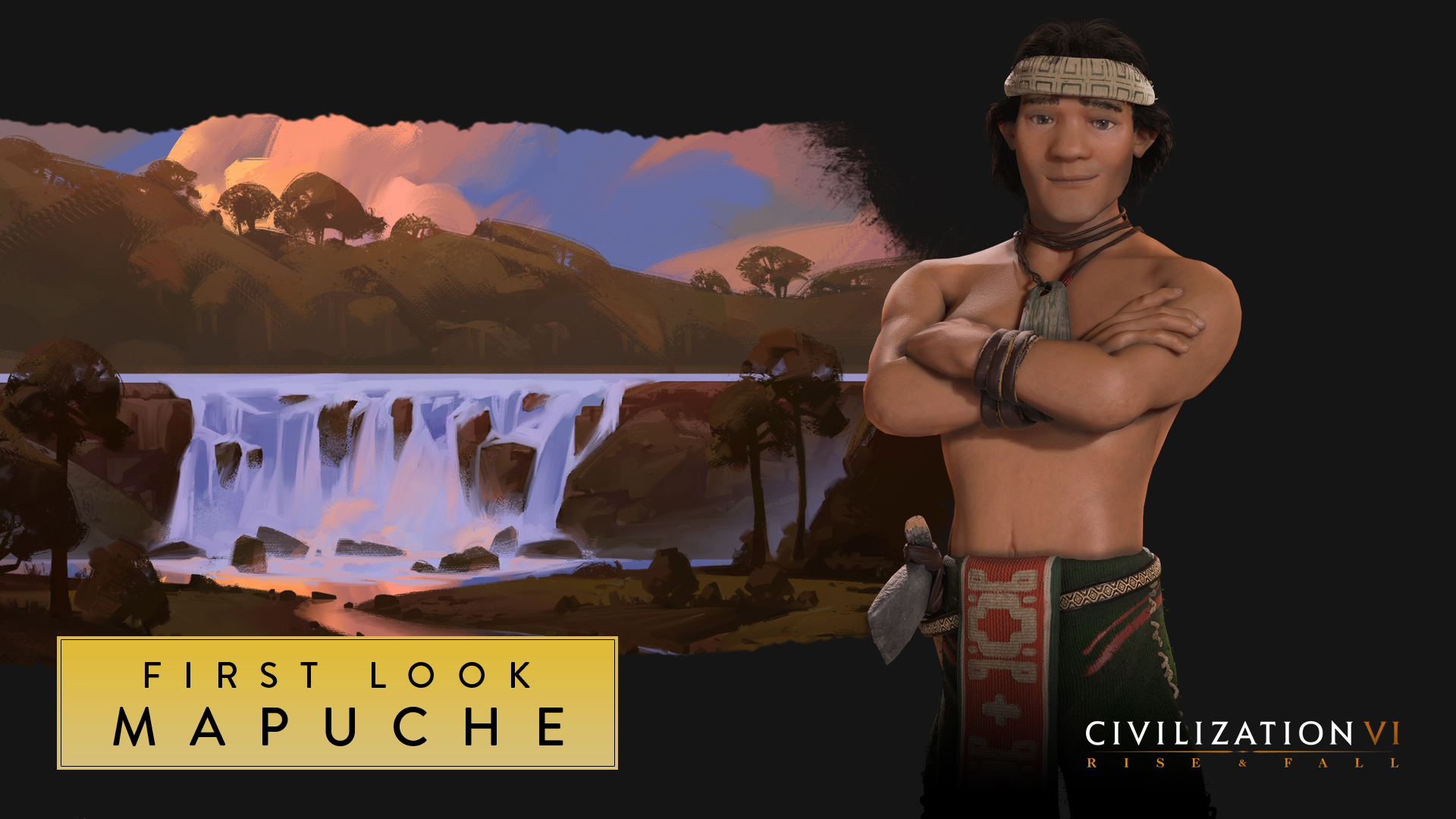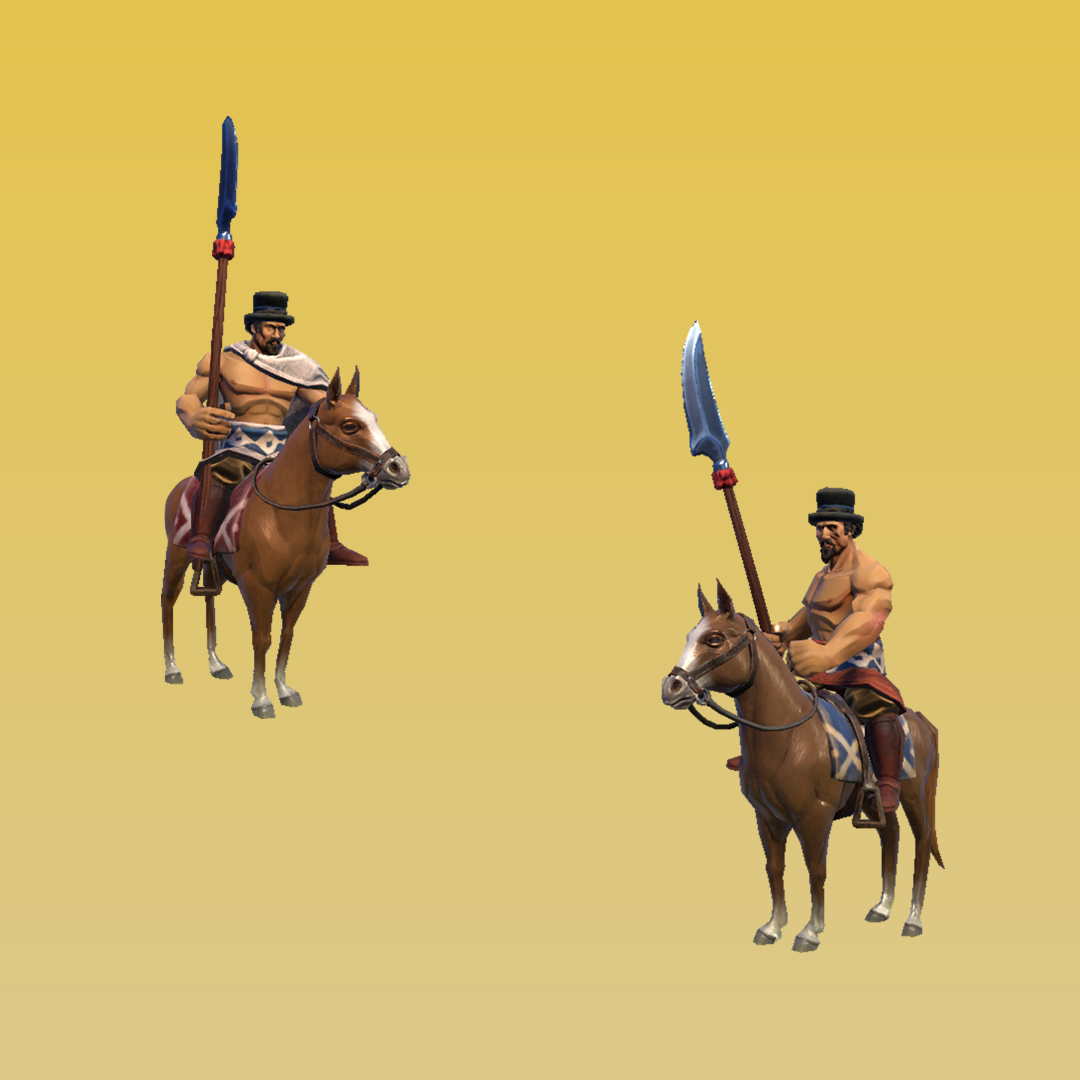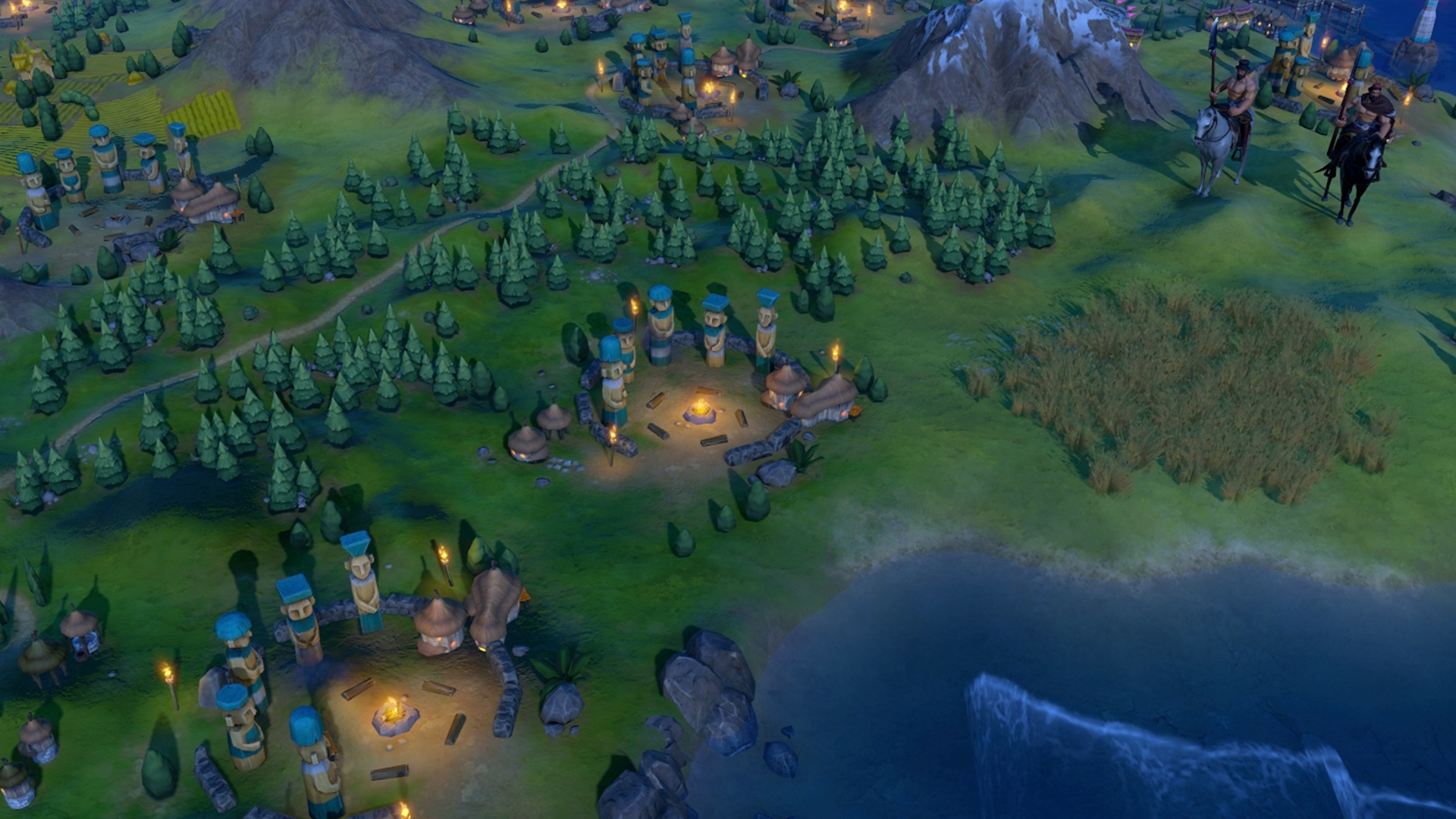
Join us here! http://store.steampowered.com/app/289070/Sid_Meiers_Civilization_VI/



It's hard to make a new strategy game that can compete with Civilization—even when that new strategy game is also Civilization. When Civilization 6 released on Steam in October 2016, it peaked at more than 160,000 concurrent players, quite a feat for any new game. But after the excitement of its first month, Civilization 6 has failed to surpass Civilization 5 in terms of regular players, according to Steamcharts. It’s gotten pretty close in recent weeks as expansion hype for Rise and Fall builds, but Civ 5 still holds the edge. Similarly, community members reported that Twitch viewership between the two games tended to favor Civ 5 prior to press and streamers receiving pre-release code for the expansion (though we were not able to independently verify this).
Why is this? Why are 4X fans (at least on Steam) still sticking to the old warhorse rather than moving on to the new hotness? Is it discontent with changes made in the newer iteration? Is it the price difference? Was Civ 5 just that good?
To unravel the mystery, we surveyed Civ players on Twitter, the Civilization subreddit, the CivFanatics forums, the Civilization 5 and 6 communities on Steam, and a handful of Civ-centric or Civ-friendly Discord servers. The results aren't scientific, but the responses give us some insight into 2010's enduringly beloved Civilization.
As it turns out, the survey results don’t reflect SteamSpy’s numbers right off the bat. Almost 57 percent reported that Civ 6 is already their main jam, with Civ 5 coming in second at a respectable 40.7 percent. Write-in responses mentioned no longer playing Civ, bouncing between multiple games, and at least one respondent who insisted their favorite Civ game was Europa Universalis IV. (I swear I didn’t vote in my own poll.)
A discrepancy between responses in a voluntary survey and actual player numbers isn’t that wild. But we may also be able to infer from this that the players who are very active in the Civ community have already adopted Civ 6 more widely than the general player base. A comment from Reddit user Reutermo seems to endorse this idea."I think that Civ players are a bit different than a lot of other gamers," he writes. "I know some people, especially older ones, who don't really play any other games except for Civilization. They treat the game like solitaire. They don't really need a new version, they already have theirs."
So the difference in player numbers may be made up not by active forum posters and redditors who devour new leader announcements and discuss optimal city layouts. A lot of those still playing older Civs might be someone more like your friend’s dad who doesn’t own anything else on Steam and makes a go of casually conquering the world over morning coffee. Again, we can only speculate—but I’m drawn to this theory, as it can serve as a reminder that the vocal online community for any given game is often not representative of the larger base including casual, solo, and offline players.
Image via Steamcharts
Here we can see pretty clearly that Civ 5 had early adopter problems of its own. While SteamSpy data isn’t available going back that far, the most popular answer was "after two expansions," coming in at about 41 percent. 35 percent switched over right away, 15 percent more were sold after Gods & Kings, and just over nine percent said Civ 5 never became their go-to game (either because they stuck with an older iteration like Civ 4, or because Civ 6 was their first—I was silly and didn’t think to separate these two possibilities into their own responses).
Reddit user J-Codo gives some voice to this phenomenon: "Civ V was regularly denounced until the DLCs came out. Give it time, Civ VI is the better game."
And he’s not wrong. Many Civ 4 die-hards criticized changes like only allowing one military unit per tile, and the lack of features like religion in the initial release of Civ 5. In my personal experience, I switched to Civ 5 pretty early on—but it wasn’t until after the second expansion, Brave New World, that it really felt like a complete game.
This was the most divisive question, with roughly a quarter of respondents each deeming it somewhat better, about equal, or somewhat worse. Overall, those that said it was somewhat or much better outnumbered those who said it was somewhat or much worse—43.2 percent versus 31.8 percent, respectively. If you add up all those that said it was at least as good as older Civs, we can see that around 68 percent don’t view Civ 6 as a step in the wrong direction when all things are considered.
It may be telling that the most popular answer, by a narrow margin, was "about equal." When you correct for other factors like price, that may tell us something about why many haven’t seen a compelling reason to jump ship at this point.
This question was specifically targeted at those who are not currently playing Civ 6 as their main Civ game. It received 208 responses, while 229 survey-takers skipped it. Respondents were instructed to select all factors that applied to them.
The most popular answer was "Missing features I liked in past Civ games," with over 55 percent of respondents claiming this affected their choice. The second most common gripe was the art style and graphics, with around 44 percent.
27.5 percent proclaim Civ 6 is already the best in the series. A close second, at 24.7 percent, believe it will take its place at the top after two expansions
The third most common response was the write-in "Other" category, where the most common complaint was about the AI of non-player civs. This was a problem for 30 percent of write-ins and roughly nine percent of those who answered this question altogether. 6.7 percent lamented that Civ 6 was not as moddable, and/or that one of their favorite mods had not carried over from Civ 5 to Civ 6—with Civ 5’s Vox Populi mod being called out by name more than any other.
Around 32 percent criticized the user interface. A handful of others expressed that the price of Civ 6 was currently too high, or that they were waiting until all of the expansions came out to be able to buy them together as a bundle. This is definitely a major factor to consider, as Civ 5 Complete Edition has been available for as little as $12 on sale, whereas I was not able to find the base game for Civ 6 (excluding any DLC) available for less than $30 anywhere other than shady-looking key resellers (though it was recently in January's Humble Monthly Bundle).As Reddit user Portugal_TheDude put it, "I think some of this comparison is just blown out of the water. One game has been around for a lot longer, is cheaper, and has had two dedicated expansions and tons of DLC. [Civ 6] is way further along than [Civ 5] was at this point in its life cycle." Several others agreed that Civ 6 at launch was better than Civ 5 after its first expansion, and if we compared them outside of time, it wasn’t until the second expansion that Civ 5 surpassed the launch version of Civ 6 in quality.
The most common answer once again supports the idea that our pool of respondents have already embraced Civ 6, with 27.5 percent proclaiming that it’s already the best in the series. A close second, at 24.7 percent, believe it will take its place at the top after two expansions. Meanwhile 16.7 percent trust that Rise and Fall will give it the boost it needs to beat out its older siblings. At least 12.6 percent believe that their grievances couldn’t be addressed with an expansion, but rather fundamental changes to the base game would need to be made.
Of the write-in answers, the most commonly-cited demand was better mod support. Others once again brought up the poor AI, performance optimization, or some combination of the above. One respondent said, "When my friends buy & are willing to play multiplayer." This gives us perhaps a further hint. Even if you’re in a position to buy every brand new strategy game the day it comes out, being a part of a larger group who devotes less of their budget or energy toward having the latest version of things could cause you to hold back until the entire gang is ready to move on.
The resounding majority seems to view Rise and Fall as a step in the right direction. 32.7 percent said it would make Civ 6 much better and 48 percent said somewhat better, for a total of over 80 percent feeling optimistic. Less than two percent felt it would make the game somewhat or much worse overall, and around 11 percent said they hadn’t been following news about the expansion.
This question received 228 answers, and the most commonly cited feature by far was better AI, referenced by 33.7 percent of the comments. Not far behind was the return of the UN/World Congress and Diplomatic Victory, which was mentioned in some form by 27.6 percent of respondents, and a similar number said they wanted more diplomatic options in general. Roughly 21 percent said they would like to see changes to armies, with a focus one tweaking or adding to the current military tech tree and/or overhauling movement rules.
Around 11 percent expressed a desire for more new civs or more alternate leaders for existing civs, and another 11 percent expressed dissatisfaction with the current Religion and Theological Combat mechanics—some calling for a total overhaul of the system. Nine percent brought up better mod support once again. 7.7 percent were unhappy with how districts currently work, and another 6.7 percent didn’t like the current government and policies system.
At least a handful of respondents felt Firaxis hadn’t been daring enough. "I'd like them to really be bold," one commented. "They said since Civ 6 included most of the systems from [Civ] 5 in its base game so they could expand into new territory. I like Rise and Fall but I feel it's playing it too safe. Not ambitious enough for my tastes."
Much like the age-old questions, "Why did the Roman Empire fall?" and "Why wouldn’t Heather go to prom with me?", this is probably a quandary without a single, simple answer. At least a sizeable portion of the active, online community has already switched happily to Civ 6. Of those who haven’t, factors from price to features to aesthetics all play roles of varying importance to various people. For some, it has nothing to do with how good Civ 6 is. They’re simply content with Civ 5. And I can’t blame them—Civ 5 remains one of my favorite strategy games of all time, while I’m not sure Civ 6 would make that list just yet. The march of expansions and Steam sales will tell how long it takes for Sid’s latest flagship to overtake its predecessors. Until then, I will leave you with the definitive, final word from the immortal Ice T:



The upcoming Civilization 6: Rise and Fall expansion will add the Zulu to the roster of nations, led by Shaka, the illegitimate son of a Zulu chief who would suffer exile and humiliation before finding his place as a warrior in the ibutho, eventually rising to become one of the most influential rulers of the Zulu Kingdom.
The unique Zulu unit is the Impi, a light, highly-disciplined force that is less expensive than other combat units of the same era, has an increased flanking bonus, and earns experience at an increased rate. The unique district is the Ikanda, a self-sufficient, fortified homestead that provides additional housing and, when prerequisites are met, enables Corps and Armies to be built outright.
Shaka's unique ability, Amabutho, reflects his commitment to the constant, harsh training of his troops, and enables him to form Corps and Armies earlier than other leaders, with additional Base Combat Strength. The Zulu civ ability is Isibongo, awarding bonus loyalty to conquered cities when garrisoned and automatically upgrading units that conquer them into a Corps or Army when the proper Civics prerequisites are unlocked.
Shaka was a deft politician and an outstanding military commander whose military innovations helped make the Zulu one of the most powerful and feared nations in southern Africa. But his rule was far from peaceful, and the death of his mother in 1827 led to a period of mandated grieving that resulted in the deaths of as many of 7,000 of his people. He was ultimately assassinated by his two half-brothers. Try to do better.
Civilization 6: Rise and Fall comes out on February 8. We spent 150 turns with it earlier this month.

